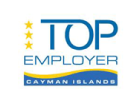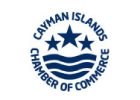Regulatory Boom Impacting Cayman Legal Recruitment
by Graham Blyth on Dec 20, 2022
Recently, we have seen significant demand for legal expertise in the regulatory and compliance spheres, and this is a trend that is gathering pace offshore due to what can only be described as an onslaught of global financial regulation over the last few years.
Two sides of the same coin
As financial institutions and companies around the world face an ever more complex operating environment, it’s their legal advisors who are best placed to help negotiate the new rules and regulations now in place. As leading centers for the domicile of investment funds and corporate structures for global capital deployment, it has been the offshore financial centers where much of the regulatory focus has been directed. As the major law firms, notably in the Cayman Islands, have seen an increasing share of work on the regulatory side, they have in turn directed significant resources to build out their regulatory and risk practices. Partners with dedicated experience in this area are heading up the teams and gaining a much higher profile in the industry as a result.
This trend has also filtered through to the recruitment side, and the numerous requests we are seeing for lawyers with a regulatory background and experience of working directly alongside global regulatory bodies were simply not happening four or five years ago.
The widespread regulatory changes implemented worldwide began initially as a response to the global financial crisis in 2008 when banks deemed too big to fail did just that, and both hedge funds and offshore centers were cast as the villains, as liquidity in the global financial system dried up. First in the US came the Dodd-Frank legislation and the Volcker Rule, which were put in place to curtail how banks were to some degree, operating as their own hedge funds through proprietary accounts. For the US financial institutions operating in the Cayman Islands, these new laws meant a new level of compliance headaches and the need for specialist offshore counsel.
Also worth mentioning is the controversial issue of beneficial ownership registers. This has kept regulatory concerns firmly on the agenda in the offshore world, with the UK parliament insisting that its Overseas Territories adhere to proposals to introduce a public register of beneficial ownership interests, which is being fiercely resisted by the Cayman Islands government.
Europe has also been the scene of significant regulatory upheaval in recent years, not least with the Alternative Investment Fund Managers Directive (AIFMD), which governs how investment funds are sold and marketed in the EU. The Cayman Islands’ legislature went to great lengths to introduce an AIFMD compliant framework for funds and managers that wish to operate in Europe.
Regulatory fatigue
Global regulatory changes directed more specifically at offshore centers, concerned primarily with issues of tax information reporting have dominated discussions between funds, companies and their legal advisors, with the US FATCA legislation and the OECD’s Common Reporting Standards ushering in a plethora of new reporting requirements. Together, this legislative revolving door has left the financial services industry in a state of regulatory fatigue and it has been a constant struggle and expense for fund managers, particularly new entrants to the business to try and keep up with the pace of change.
GDPR exacerbated this further for Cayman service providers, and this particular piece of legislation has had far-reaching implications beyond the world of finance. These regulations seek to protect the personal data of EU citizens in a new age of big data and cybercrime. The extraterritorial nature of the legislation means that even if a company or investment fund is not located in the EU, it could face potential penalties of EUR 20 million, or 4 percent of turnover if greater, for failing to comply with rules protecting European data subjects.
Local regulatory changes have also been important areas of interest to clients of Cayman Islands law firms, notably the revised Anti Money Laundering Regulations, which in addition to bringing a large number of unregulated entities into the scope of the law, required corporate bodies and investment funds to appoint individuals to key compliance positions, which has been a catalyst for the increased demand for compliance and regulatory work.
This UK and EU rhetoric led to Cayman being placed on the FATF (Financial Action Task Force) grey list and the EU’s grey list in 2022. This was unwelcome news for the Cayman Islands as a jurisdiction by many industry professionals as an unfair overreach. Local regulators, government, quasi-government bodies, law firms and accounting firms are now all working in unison to remove Cayman from these lists. It is anticipated that they will be successful by late 2023.
A hallmark of the local legal market in the Cayman Islands has always been the combination of high-quality work, of an equivalent standard to any major financial capital, with the benefit of a work-life balance that you simply can’t find onshore. For a leading offshore jurisdiction like the Cayman Islands, its growing risk and regulatory practices encompass such areas as anti-money laundering, bribery and corruption, corporate disputes, and the regulatory impact of mergers, sanctions, market abuse, insider dealing, and regulatory investigations. As the regulatory picture continues to evolve both offshore and in a global financial context, demands on Cayman’s legal professionals are likely to remain strong in this area, representing a significant opportunity for career advancement.
For more information on the Cayman regulatory market, please contact Graham Blyth at graham@cml.ky
Recent Articles


Looking for a Job?
Looking for Talent?
Copyright © 2024 CML Offshore Recruitment | Sitemap | Privacy Policy | Terms and Conditions | Powered with 💙 by Shazamme





